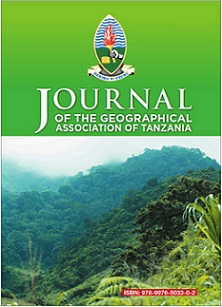The Use of Medicinal Plants and Its Implication on Plants Conservation: The Case of West Usambara, Tanzania
Abstract
In recent decades, medicinal plants have been overused. The failure of some modern medicines, an increase in degenerative diseases and the trading of medicinal plants are among the factors that have triggered such overutilization. This study was carried out in West Usambara Mountains, in Tanzania, to investigate the effects of medicinal plant harvesting on plants conservation. We collected ethnobotanical data from 160 respondents. Interviews and field observation were the main data collection methods. SPSS Version 25 was used to analyse the collected data to understand the knowledge on the parts of medicinal plant used, the preparation of medicines from plants, amount harvested, and the effects of harvested herbs on plants conservation. Information obtained from key informants was analysed through thematic analysis. The study revealed that some medicinal plant species such as Omphalogonus calophyllus and Aloe spp. were being unsustainably harvested. Furthermore, the change from cultural ways of using medicinal plants to commercial purposes was found to be threatening plant species in the area. The study concludes that West Usambara is a rich region of diverse medicinal plants and traditional healthcare knowledge. However, the change from the culture of using medicinal plants for domestic use only to commercial use is threatening the existence of medicinal plants. Hence, it signals the need for serious efforts to be made to create public awareness; initiate and establish laws so that appropriate measures are taken to conserve medicinal plants in the fragile natural ecosystem of the West Usambara Mountains.
Keywords: medicinal plants, human diseases, plant species, conservation



